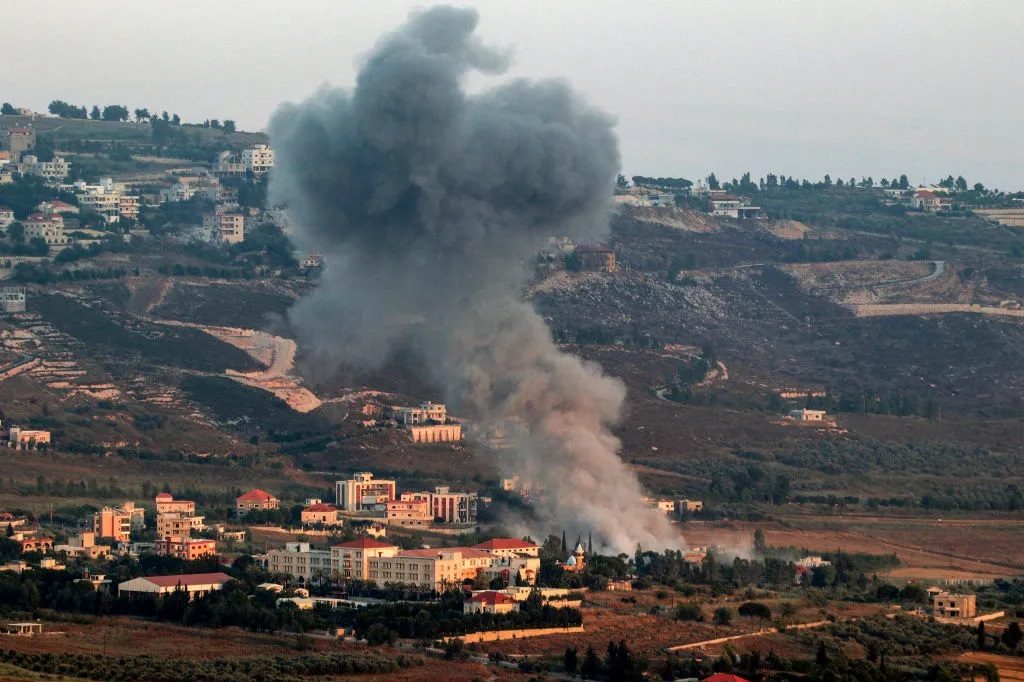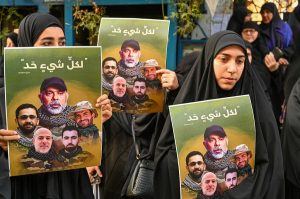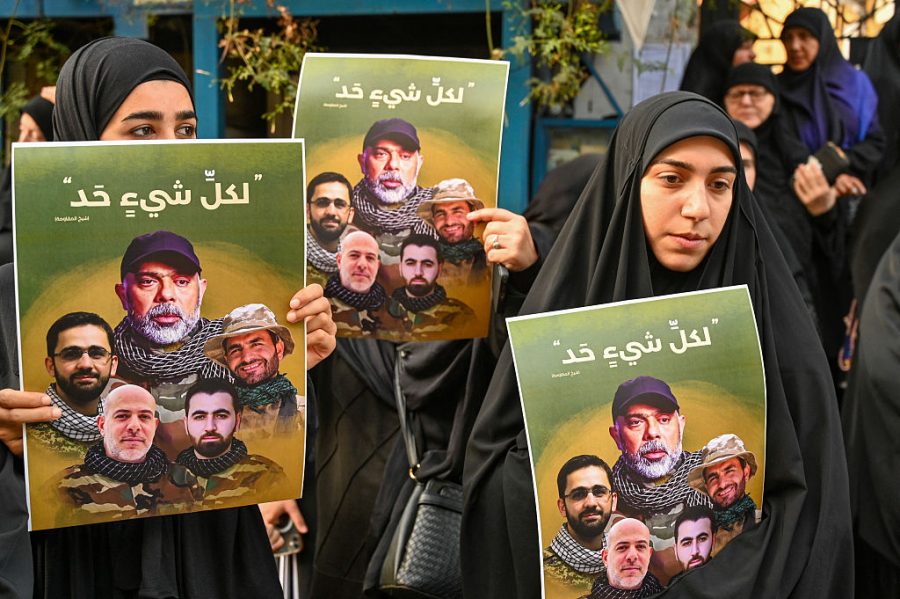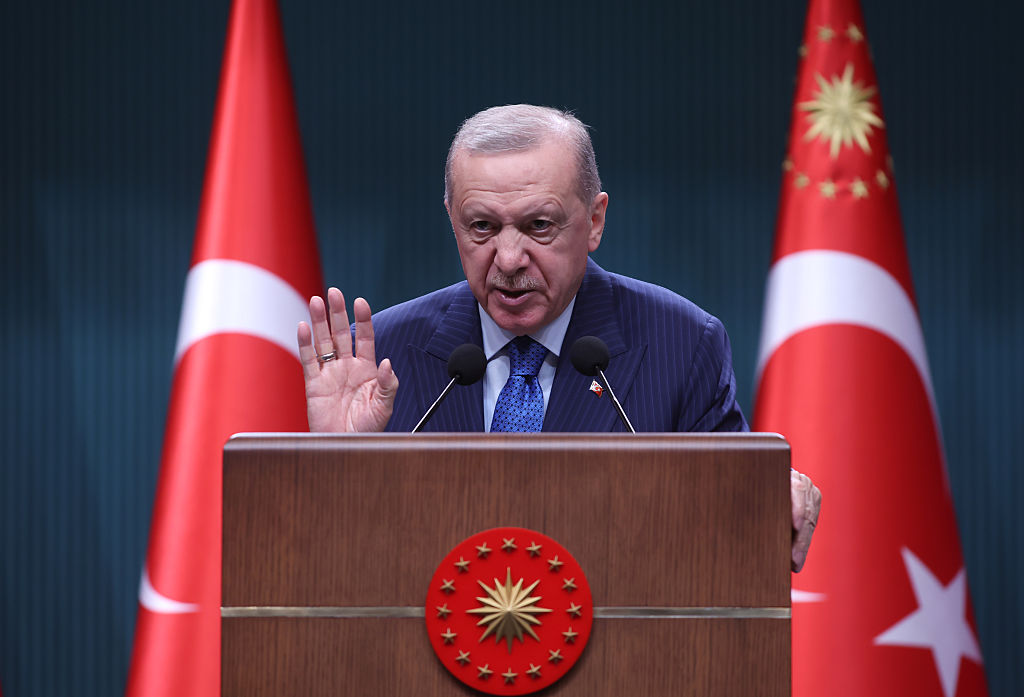As troops from the Israel Defense Forces (IDF) 98th airborne division enter into Lebanon, they know that fighting Hezbollah will prove dangerous and difficult. Although Hezbollah has deteriorated after Israel’s recent attacks, its terrorists still have significant fighting capabilities. The elite IDF troops are backed by the Israeli airforce and artillery.
It’s been nearly twelve months since Hezbollah started firing missiles at Israel, forcing more than 60,000 civilians to evacuate their homes. These twelve long months of relentless bombing have destroyed buildings, caused widespread fires and killed and injured Israelis, including children. Now Israel wants to bring this to an end. Its ground maneuver will continue what the Israeli air force started with its bombing campaign.
Since October 8, the Israeli government had hoped that international negotiations would lead to a diplomatic solution with Hezbollah. Israel never believed that Hezbollah would agree to disarm (as it was instructed to do under UN resolution 1701 in 2006), but it hoped that Hezbollah would agree to stop firing on Israel and move its armed forces behind the 25 miles line and away from Israel’s border. Attempts to reach a deal were rejected time and time again by Hezbollah’s now deceased leader Hassan Nasrallah, forcing Israel to take action.
The current ground operation is limited to the area close to the border. It is targeting terrorists and infrastructure and aims to create a buffer zone that will allow Israeli civilians to return safely to their homes. Lebanese civilians have been told to evacuate for their own safety. The United States, Israel’s closest ally, has called for a deescalation, but has also agreed to support a limited IDF operation. President Biden also said that the killing of Nasrallah is a “measure of justice” for his tens of thousands of victims. Although the Americans are delighted to see what they hope will become the demise of Hezbollah, they are worried about a wider war breaking out that could involve Iranian and American forces.
The question now is: will the operation remain limited or will it expand deeper into Lebanon in order to dismantle more of Hezbollah’s capabilities? If Hezbollah finally agrees to a ceasefire, Israel will have to decide whether the terms of the agreement are good enough to guarantee its long-time security, and whether to stop the momentum it has created against the terror organization in the past couple of weeks. Israeli troops are prepared for either option.
Possibly the more complicated issue will be who will keep the buffer zone in southern Lebanon safe from terrorist activity in the longer term. The United Nations Interim Forces in Lebanon (UNIFIL) have proven their incompetence at doing this. They are weaker than Hezbollah and also seem unwilling to confront them. I remember when I served in the region as an IDF soldier in the late 1990s, UNIFIL hostility towards the IDF led them to made decisions that placed Israeli troops at risk and aided Hezbollah. Hezbollah would often fire rockets into Israel from near UNIFIL bases, knowing that Israel wouldn’t be able to fire back. After the Second Lebanon War in 2006, UNIFIL allowed Hezbollah to quickly reestablish a significant armed presence in southern Lebanon.
Another option is for the buffer zone to be manned by the Lebanese army. However, Lebanon’s army has always been weaker than Hezbollah, and its government isn’t fully independent, but has been dominated by Hezbollah and Iran. Still, if Hezbollah is significantly weakened, perhaps Lebanon, with help from its allies, could find a way to finally stand up to those who have been undermining its sovereignty for decades.
A third option is that the IDF will remain in southern Lebanon. This is the option that the Israeli public and the international community would least like to see. The IDF held positions in the region for fifteen years, before withdrawing in 2000. Its presence in Lebanon was costly, attritional, and led to few gains. Most Israelis don’t want the army to reestablish a prolonged presence in Lebanon now as a result. A lack of international legitimacy could also harm Israel’s relations with its allies.
The Israeli government has a difficult task now. It needs to have a quick exit strategy from Lebanon, but one that will keep the country safe from Hezbollah.
This article was originally published on The Spectator’s UK website.

























